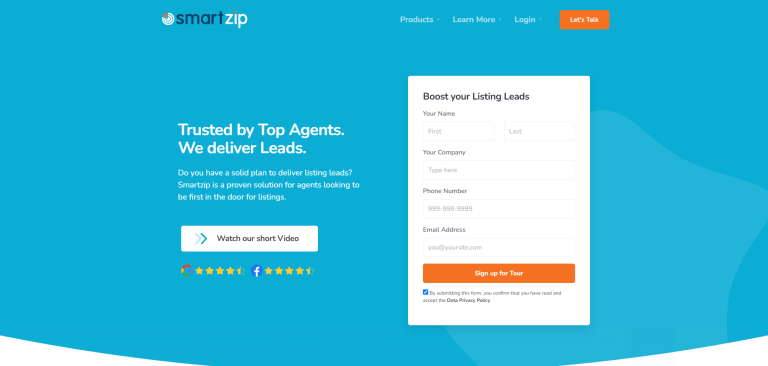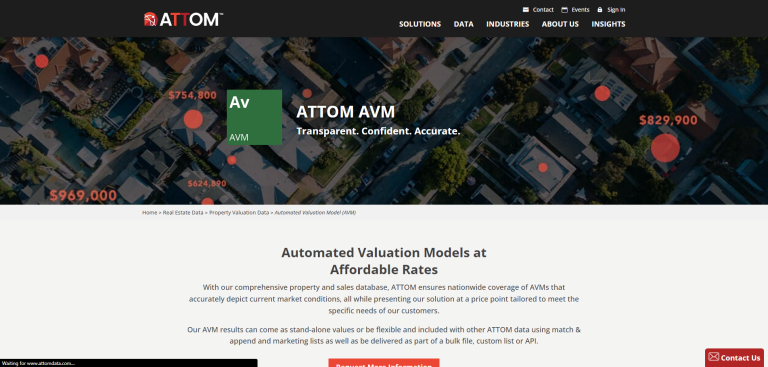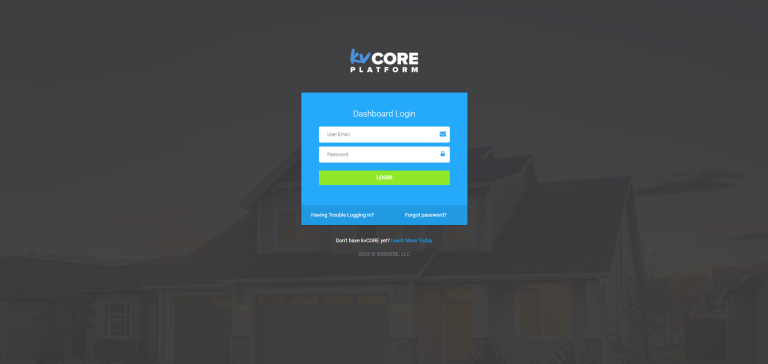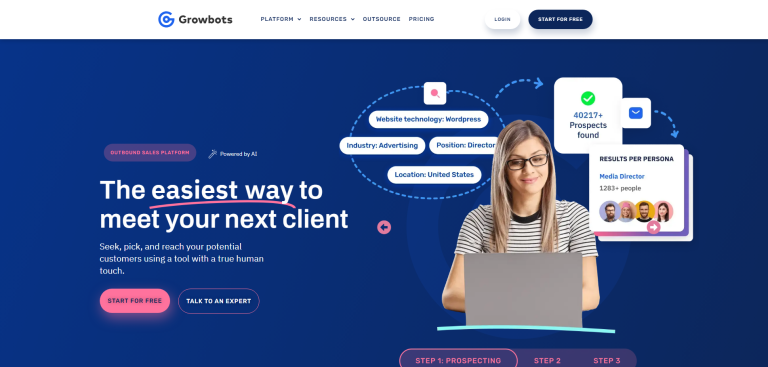
The real estate industry is evolving rapidly, and at the heart of this transformation is artificial intelligence (AI). AI in real estate is not just a buzzword; it’s a game changer.
From helping real estate agents make smarter decisions to enhancing the experience of potential buyers, AI tools are reshaping how the real estate business operates. Whether it’s residential or commercial real estate, AI technology is making its mark.
This article will explore real estate AI tools and how they are transforming the industry.
How is AI Used in Real Estate?
AI in real estate is like a new team member that works 24/7. It helps real estate professionals in various ways:
- Predicting Market Trends: AI tools analyze heaps of data to predict where the real estate market is heading.
- Enhancing Property Listings: By using AI, listings can be tailored to match the search criteria of prospective buyers more closely.
- Improving Customer Interactions: AI chatbots and virtual assistants can interact with potential buyers, answering queries and scheduling viewings.
- Streamlining Property Management: From handling maintenance requests to managing tenant communications, AI can simplify property management tasks.
- Facilitating Better Decision Making: AI provides real estate agents with valuable insights, helping them make informed decisions for their clients.
AI Tools for Predictive Analytics
Predictive analytics is like a crystal ball in the world of AI. It uses data, statistics, and machine learning to guess what might happen in the future. In real estate, this means understanding market trends and property values better.
This technology looks at past and current data to make predictions about future real estate market conditions.
How AI-powered predictive analytics can forecast market trends and property prices?
Using AI-powered predictive analytics, real estate professionals can get a clearer picture of how the market might change. These tools look at patterns in past sales, changes in community demographics, and even social media posts to forecast future market trends.
For commercial real estate investors and agents, this means being able to predict property values more accurately and identifying potential investment opportunities.
Here are some of the top AI tools for predictive analysis.
The 15 Best AI Tools for Real Estate
1. SmartZip

SmartZip is an AI tool designed to forecast which homes in a neighborhood are likely to be sold in the next 12 to 18 months with up to 72% accuracy. This tool analyses consumer data (like credit card usage), market data (like MLS listings), and demographic data to predict which homeowners are most likely to sell.
Realtors using SmartZip gain access to a customer relationship manager (CRM) filled with “Smart Data” for targeted areas, ranking property owners by their likelihood to sell. This data helps realtors focus their marketing efforts more efficiently.
Key Features
- Easy-to-use CRM and dashboard
- Smart Targeting for automated print marketing
- Useful for real estate farming strategies
Despite its benefits, SmartZip can be pricey, with users typically spending $1,000 or more monthly. It is most beneficial for realtors heavily invested in real estate farming and nurturing seller leads.
2. Offrs

Owned by the same company as SmartZip, Offrs provides similar predictive analytics but includes sophisticated automated marketing and nurturing tools.
Offrs also has a unique feature called the Roof referral system, which for a referral fee, engages with leads through multiple touchpoints in the first 90 days.
Key Features
- Access to Smart Data for predictive analytics
- Roof referral system for lead nurturing
- Unique advertising tools for integrated marketing
While Offrs offers great features, it shares some cons with SmartZip, like non-exclusive leads and a less user-friendly CRM than SmartZip. Offrs is a good choice for those needing automated marketing services, offering 30 guaranteed leads from one ZIP code for $299 per month.
Virtual Property Tours
AI-driven virtual tour technologies provide an immersive experience in property viewing, utilizing artificial intelligence to create detailed, interactive 3D models of properties.
These tools allow real estate companies to showcase properties virtually, offering a realistic and interactive experience for potential clients without them needing to physically visit the site.
Benefits of Virtual Tours in Real Estate
- Enhanced Engagement: Virtual tours captivate potential clients by providing a detailed and interactive view of the property, making them more engaged and interested in the property.
- Time and Cost Efficiency: They save time and money for both real estate agents and clients by reducing the need for physical property visits.
- Wider Reach: Virtual tours enable real estate agents to reach a broader audience, including out-of-town buyers, by making property viewing accessible from anywhere in the world.
Here are the Top 2 AI Tools for Virtual Property Tours:
3. CloudPano

CloudPano is a versatile platform that empowers users to create immersive 360° virtual tours. It’s designed for simplicity, allowing real estate professionals to quickly generate engaging virtual tours without needing any coding knowledge.
Key Features
- Easy creation of 360° virtual tours
- Embedding tours on websites without plugins
- Customizable branding and navigation hotspots
- Compatible with VR and various smart devices
4. Matterport

Matterport is renowned for its high-quality 3D virtual tours and floor plans, offering a comprehensive suite of features for real estate professionals. It’s known for its detailed and realistic virtual experiences.
👉 Take a look at our collection of the best AI website builders here.
Key Features
- High-quality 3D virtual tours and floor plans
- Advanced property visualization and measurement tools
- Customizable and interactive tour experiences
- Supports VR experiences
These tools have changed how real estate agents showcase properties, making it easier to attract and engage potential buyers through innovative AI technology.
Automated Valuation Models (AVM)
Automated Valuation Models (AVMs) are tools used in the residential real estate market. They use artificial intelligence technology to evaluate properties. AVMs analyze data points like square footage, location, and market trends to estimate property values.
They’re important for real estate professionals because they offer quick and reliable property evaluations, which are vital in real estate transactions.
Accuracy and Speed
AI-based property valuation is known for its speed and accuracy. These models can process vast amounts of property data, including comparative market analysis, in seconds. This rapid processing allows real estate agents and other professionals to make informed decisions quickly.
While they may not always match the precision of human intelligence, the accuracy of AI valuations is consistently improving.
Here are the top AI tools for automated valuation models (AVM).
5. ATTOM's AVM

ATTOM’s AVM is powered by a comprehensive residential property and sales database. It covers 98% of the U.S. population, offering property valuations on over 84 million homes across all states. This AVM utilizes various methods like market metrics, statistical models, and value blending approaches.
Key Features
- Nationwide coverage of property valuations
- Variety of valuation methods
- Low median absolute error rate
- Extensive database utilization
Customer Relationship Management (CRM) Systems
AI-enhanced CRM systems use artificial intelligence technology to improve interactions with potential clients and streamline the selling process. They help real estate agents and other professionals in building relationships, managing client data, and predicting client needs.
These systems often include features like natural language processing, AI bots, and data analytics, providing a competitive edge in the market.
How AI Can Help in Managing Client Interactions?
AI in CRM systems can transform how real estate agents interact with clients. By analyzing property recommendations, client preferences, and market trends, AI-powered tools generate insights that aid in informed decision-making.
They can perform repetitive tasks, allowing human agents to focus on building relationships. Virtual tours, AI-generated marketing content, and predictive analytics also enhance the customer experience.
Here are the top AI tools for customer relationship management (CRM) systems:
6. Freshsales

Freshsales, developed by Freshworks, is a CRM solution that enhances the sales process through various tools, including lead management, email, and event tracking.
It features Freddy AI, an advanced artificial intelligence system that automates routine tasks and delivers predictive insights to streamline the sales process. Its chatbots engage customers in real-time, providing immediate responses and nurturing leads.
Key features
- AI-powered Freddy for routine task automation and predictive insights.
- Real-time customer engagement chatbots.
- Extensive tools for lead management and event tracking.
- Mobile app for iOS and Android for on-the-go customer data access.
7. Zoho CRM with Zia

Zoho CRM’s Zia is an intelligent AI assistant that provides advanced features such as account planning, guided selling, and lead prioritization. It analyzes data using built-in machine learning algorithms and offers actionable insights for better decision-making.
Zia enhances the CRM experience by providing consistent customer experience across various channels and offers predictive sales analytics.
Key Features
- Account planning and lead prioritization using predictive scoring algorithms.
- Guided selling and data enrichment for faster deal closure.
- Predictive forecasting using historical data and machine learning.
- Seamless integration across various communication channels.
These AI-enhanced CRM systems provide a competitive edge in managing client interactions by utilizing advanced technologies such as predictive analytics, lead scoring, and AI-powered chatbots.
These tools not only automate repetitive tasks but also offer insights and personalized experiences, crucial for building relationships and making informed decisions in the dynamic real estate market.
Chatbots and Virtual Assistants in Real Estate
AI chatbots are revolutionizing the real estate industry. They assist in answering queries, scheduling appointments, and providing information about properties. By being available 24/7, they enhance customer service and improve lead generation.
Examples of Chatbot Assistance in Real Estate
Chatbots in real estate can:
- Answer common queries about property features, prices, and locations.
- Schedule viewings and appointments automatically.
- Provide detailed comparative market analysis for properties.
- Assist in property searches by understanding buyer preferences.
- Engage potential clients through interactive conversations.
Here are the top AI tools for chatbots and virtual assistants in real estate.
8. Serviceform

Serviceform ai bot is tailored for real estate with a dynamic chatbot that can answer numerous questions from web visitors, help find properties, and engage with potential buyers and sellers. It’s designed for both desktop and mobile use.
- Contextual chatbot experiences for active property listings.
- Multimedia support, including virtual tours within the chatbot.
- Automated lead qualification and real-time notifications for new leads.
- Automatic CRM synchronization.
9. Tidio

Tidio is an AI-powered platform providing customizable chatbot services not only for real estate but also for other industries. It’s equipped with pre-made templates for various customer service functions.
Key Features:
- Over 35 pre-made chatbot templates for different functions.
- Customizable chatbots with various actions, triggers, and conditions.
- Integration with various e-commerce platforms and third-party apps.
- Analytics and insights for tracking customer engagement.
Document Analysis and Automation in Real Estate
AI in document management and contract analysis streamlines the processing of vast amounts of paperwork in real estate. It involves smart algorithms that can read, understand, and analyze documents, thereby reducing errors and saving time.
Benefits of AI in Document Analysis and Automation
- Reduced Errors: AI tools can accurately process and analyze documents, minimizing human error.
- Time-Saving: AI automates repetitive tasks, freeing up time for real estate professionals.
- Enhanced Efficiency: AI tools streamline document processing, making the workflow smoother and faster.
Here are the top AI tools for document analysis and automation in real estate:
10. ListAssist

ListAssist utilizes computer-vision AI technology to detect and identify features in properties, such as room types, architecture, and building materials. It’s used to generate listing summaries, marketing video scripts, social media posts, and local area information.
Key Features:
- Advanced feature detection in properties
- Creation of comprehensive property summaries
- Integration with marketing and social media tools.
11. FlōPlan

FlōPlan is an AI tool that allows you to create complete floorplans using just a smartphone. It uses AI technology to stitch together videos to create accurate floorplans, including room dimensions.
Key Features:
- Easy creation of floorplans using a smartphone
- Quick processing within 24 hours
- Accurate room dimensions included in floorplans.
Both these tools showcase the growing integration of AI in real estate, focusing on enhancing efficiency and accuracy in property evaluation and documentation. They represent a significant shift from traditional practices, leveraging smart algorithms and AI integration for a competitive advantage in the real estate market.
AI Tools in Lead Generation and Marketing for Real Estate
In the fast-paced world of real estate, leveraging AI tools can revolutionize how real estate agents connect with potential clients and sell properties.
These AI-powered platforms are not just about technology; they are about making connections more efficiently and effectively. Let’s dive into how these tools work, especially in identifying potential clients.
12. kvCORE

kvCORE is a comprehensive real estate platform designed for modern real estate agents. It integrates various tools to streamline daily activities, from lead generation to transaction management.
Aimed at enhancing productivity, it offers a suite of AI-driven features that cater to the dynamic needs of real estate professionals.
Key Features:
- Automates prospecting and identifies potential leads.
- Manages client interactions and follow-ups.
- Provides data-driven insights for market trends.
- Simplifies the process of managing property listings.
- Offers on-the-go access for agents.
For the other two tools, Growbots and Lumen5, I will now access their websites to provide a detailed overview and list of key features.
13. Growbots

Growbots is an AI-powered outbound sales platform designed for real estate professionals. It streamlines the lead generation process by automating the search and outreach to potential clients.
Growbots’ platform allows real estate agents to easily identify and connect with prospects, optimizing their sales strategies with AI-driven insights.
Key Features:
- Access a vast database of verified prospects, filtered to match target markets.
- Schedule and send personalized email campaigns effortlessly.
- Utilize detailed analytics to monitor and improve campaign performance.
- Ensures emails reach the inbox, improving response rates.
- Provides strategic advice and support for outbound campaigns.
14. Lumen5

Lumen5 is an AI-driven platform that enables real estate agents to create engaging social media video content effortlessly. Leveraging generative AI, Lumen5 simplifies the process of converting text content into compelling video narratives, making it an ideal tool for real estate marketing and client engagement.
Key Features:
- Automatically transforms text into video content.
- Tailored for creating content optimized for social media platforms.
- Easy for real estate professionals to create videos without prior video editing experience.
- Offers various templates and styles to match branding and marketing needs.
15. Xara Cloud

Xara Cloud is a content marketing software specifically tailored for real estate agents. This platform simplifies the creation of branded marketing materials, making it easier for real estate professionals to maintain a consistent brand image across various mediums.
It’s particularly useful for producing high-quality, visually appealing content quickly and efficiently.
Key Features:
- Streamlines the design process with easy-to-use templates.
- Ensures brand consistency across all marketing materials.
- Facilitates teamwork on content creation.
- Automatically generates content from MLS listings.
- Supports a wide range of marketing materials from social media posts to detailed brochures.
Enhancing Real Estate with AI and Human Collaboration
In the real estate industry, the collaboration of live agents and AI matchmaking tools is revolutionizing the way professionals engage with clients and properties.
Agents are now more equipped in building relationships, thanks to AI’s ability to analyze client preferences, even in complex scenarios like assessing empty rooms or envisioning developments like self-driving cars in urban landscapes.
This synergy extends to commercial sectors, improving how office buildings are marketed and managed. AI tools support agents in providing tailored experiences, while the human touch remains crucial in fostering genuine client connections. This blend of technology and personal interaction defines the new era of real estate.
Conclusion
AI tools in real estate are revolutionizing the industry, offering agents and professionals efficient solutions for lead generation, market analysis, and client interaction. From AI matchmaking tools that align buyer preferences with properties to AI assistants streamlining customer interactions, these technologies are enhancing the real estate landscape.
Key tools include kvCORE for lead generation, Growbots for outbound sales automation, Lumen5 for social media content creation, Xara Cloud for marketing material design, and Reonomy for property intelligence.
These tools not only offer comparative market analysis based on extensive data, and virtual staging options but also open new possibilities in areas like image generation and predictive analytics. As the industry evolves with advancements in AI, real estate professionals are equipped with powerful tools to stay ahead in a competitive market.
Discover More AI Tools
Every week, we introduce new AI tools and discuss news about artificial intelligence.
To discover new AI tools and stay up to date with newest tools available, click the button.
To subscribe to the newsletter and receive updates on AI, as well as a full list of 300+ AI tools, click here.










